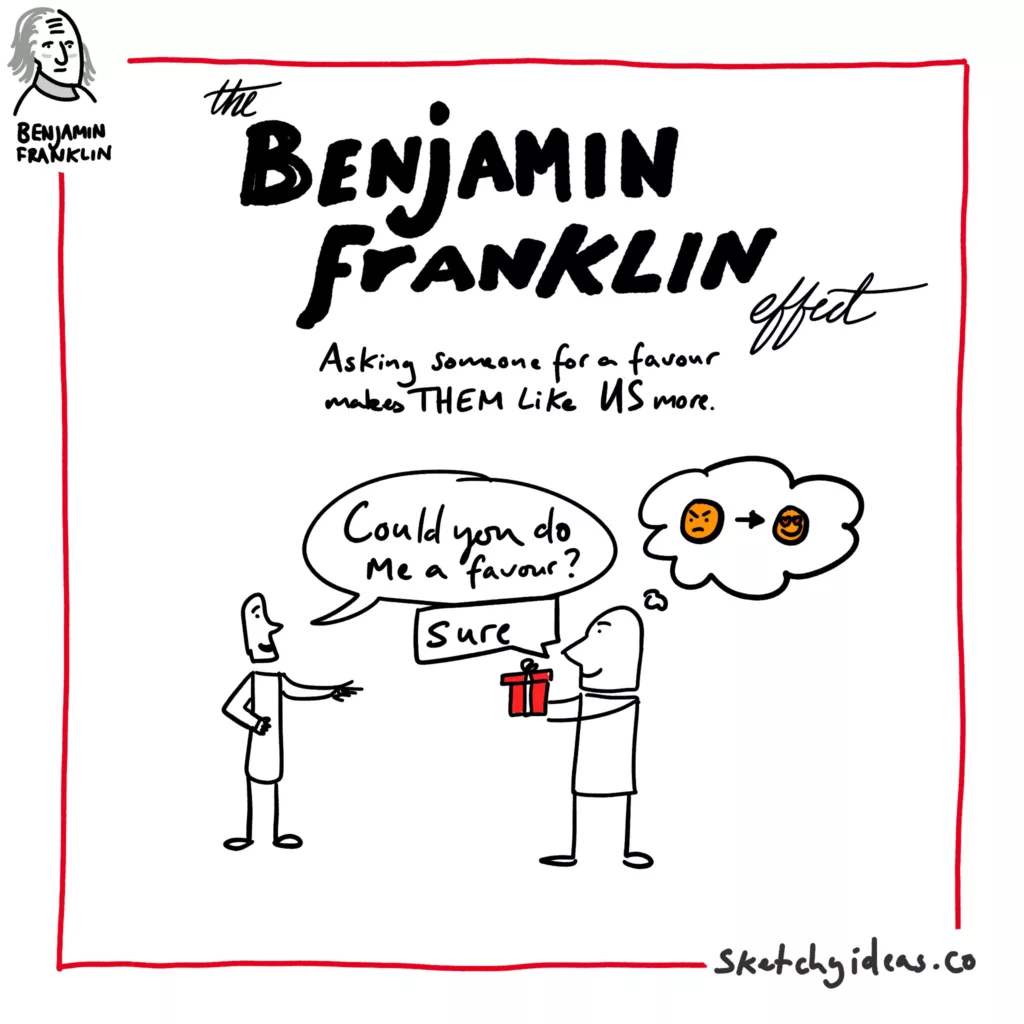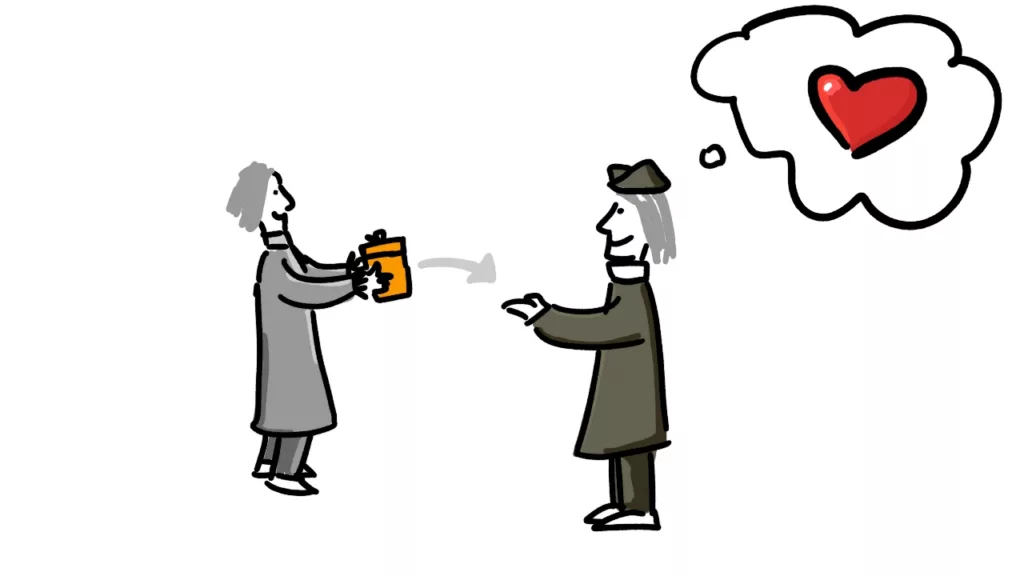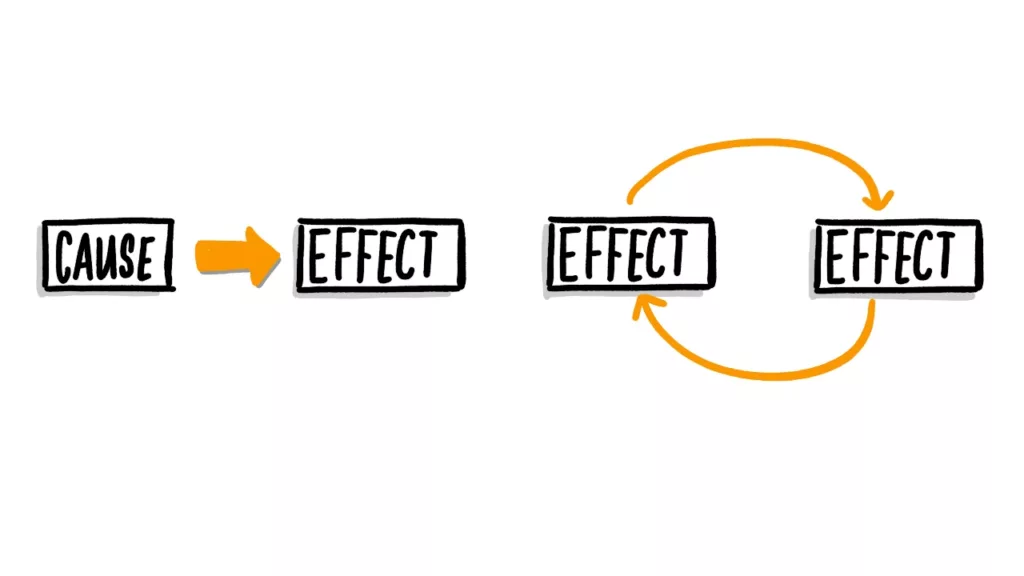The law of reciprocity is a well-known idea. If we do something nice for someone, they will feel compelled to do something nice back. But today’s mental model is far less known despite its connection. The Benjamin Franklin Effect shows us that if we want someone to like us, it can be better NOT to do them a favour.
So read on as we find out what the effect is, where it came from and how you can use it to build relationships and bridge divides.
What is the Benjamin Franklin Effect?
The Benjamin Franklin Effect is a mental model suggesting that people tend to develop a more favourable opinion of someone for whom they have performed a favour.

That’s right, asking for a favour can build relationships more than performing a favour.
This is because of the law of consistency.
When we go against our principles, it causes cognitive dissonance. We want to resolve that tension as soon as possible which most often leads to finding an excuse or changing our thoughts.
So if we do something nice for someone, we tend to tell ourselves we like that person.
The origin story behind the effect backs this up.
The story behind the effect
Benjamin Franklin was struggling with a political opponent.
It seemed like this rival just wanted to stop Benjamin at every turn. Franklin knew that if he didn’t find a way to work with this member of the Philadelphia House, his political career would stall.
So when he discovered that his rival owned a rare book, he saw his opportunity.
He sent a letter to the man praising his book and collection before asking to borrow the book. The rival sent the book immediately which Franklin promptly read and returned in excellent condition. That small act changed everything.

The next time they met, Franklin’s rival was cordial. Soon they became friends even when holding opposing views on issues.
Why Does the Benjamin Franklin Effect Matter?
The Benjamin Franklin effect goes against our natural intuition.
We normally assume that to get someone to be more favourable towards us, we should do something nice to them. While that can work due to the law of reciprocity, it’s not always true. Some people are resistant to these attempts to curry favour and win someone over.
They often don’t notice the reverse.
This provides our first obvious application.
Build relationships through favours and requests
If you want to build a deeper relationship with someone, you should ask as well as give.
But there are other reasons the Benjamin Franklin effect is significant.
The complex relationship of cause and effect
One of the primary rules of statistics is correlation doesn’t mean causation.
When it comes to chemicals and physics, things are usually straightforward. One thing causes another. But when it comes to the human brain and people’s behaviour, it’s less obvious.

As we’ve seen already, the effect can actually produce the cause in this case.
Another common example is habits where the action and motivation both influence each other. While you could try to change one, it might be more effective to change the other.
Noticing these positive feedback loops provides more opportunities to leverage these effects.
Don’t just ask for a favour
Franklin didn’t just ask for a favour.
He made sure to
- Flatter and praise the recipient
- Highlight their mutual interests
- Act promptly with respect to the other person
These steps helped show his rival that Franklin was a man he had more in common and acted with respect. These were crucial elements too.
So next time you want to make a friend…
Relationships are tricky.
No one likes someone who only asks and asks. But it turns out that making a request can endear ourselves to others.
The next time you want to build a positive connection, you can do as Franklin did: make a request while showing respect and honour to the person you are asking.
Who knows. It might just be the start of a great friendship.

Leave a Reply